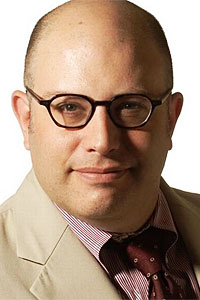There is no question that President Donald Trump's shifting reactions to the domestic terrorism in Charlottesville, Virginia, has been odious. While he condemned the murder of Heather Heyer, his equivocations, hedges and moral equivalency in the last few days signal a quiet approval of white supremacists. "What about the alt-left?"
This is particularly odious because of America's shameful history of slavery and the subjugation of black citizens. It is our original sin. And we expect our modern presidents to help clean the stain, not excuse it. A vast majority of Americans understand this. They know that Ku Klux Klansmen have no place in our politics today.
That said, it's important to understand what the terror in Charlottesville is not. It is not a return of Jim Crow. Nor is it the face of the new right, despite the bigots' call for unity. It is not the dawn of American fascism either.
Rather it is the growl and gasp of a hateful and hopeless fringe. Consider the terrorist, James Fields Jr. He dropped out of the army. He had until recently lived with his mum. He grew up in a fatherless home. He had trouble making friends. He suffered from the same kind of alienation that drives young men and women to join the Islamic State. Indeed he chose to murder his victim by ramming his car at full speed into a crowd, the same technique used by the radical Muslims in Europe his movement deplores.
It's important at this moment to remember that terrorism and street fights are the recourse of the weak. Radical movements that cannot advance their agenda through the ballot will choose bloodshed. But this does not mean their agenda will succeed. If American history is any guide, they never do.
From the anarchists at the turn of the 20th century to the Weather Underground of the 1970s, radical movements have failed. The chances that the bigots in Charlottesville can bring back segregation are as non-existent as those that husband-and-wife shooters of San Bernardino, California, had in heralding an era of American Sharia.
At the same time, because of the history of race in American politics, this represents a break from the past as well. Until the 1960s, white supremacism was the ideology of the state. For a century after the civil war, the Klan was an adjunct of local and state police. Southern senators were openly racist. Universities barred blacks and other minorities. Southern courts meted out two tiers of justice. Blacks were lynched, while the lynch mobs walked free.
One of the triumphs of the civil rights movement was to smash apart this foul system. And while cynical politicians play on racial resentment through code words and dog whistles, the old order is not coming back. None of this is to say that America has solved its race problem. Blacks and other minorities are still disproportionately targeted in the nation's pointless war on drugs. The work of perfecting our union is never done. But the norms that Mr Trump tried to destroy as a candidate are not as fragile as the bigots would like to think.
Some have argued that the rise of Mr Trump tests this thesis. He has made it okay to be racist. He has emboldened these loathsome losers. Neo-Nazis and white nationalists claim him as their own. He is their president, so the argument goes.
So far, though, there is little evidence to show Mr Trump's tolerance for these thugs has made white supremacism any more tolerable in our politics. When the former Klan leader David Duke ran in an open primary in the deep southern state of Louisiana last summer, he only got 3% of the vote. Mr Trump's initial mealy-mouthed response to the Charlottesville terror earned him rebukes from across the political spectrum, including leaders within his own party such as Marco Rubio and Ted Cruz. His attorney-general, Jeff Sessions, wasted no time calling Mr Fields a domestic terrorist. Since the incident, Mr Trump has had to abolish his manufacturing council after business leaders resigned en masse. The norms Mr Trump tried to smash in the election endure. The president's reaction to Charlottesville has isolated him.
Nor is the prospect of right-wing terrorism anything close to an existential threat. Between 2000 and 2016, White supremacists were responsible for 49 murders in 26 attacks, according to a recent FBI-Department of Homeland Security report published this week by Foreign Policy magazine. Each is a tragedy, but the total is tiny in a nation with 16,000 homicides each year.
There is a reason for this. The FBI over the last half-century has infiltrated and helped prosecute the fringe of Americans who seek a return to white supremacy through violence. In the meantime, groups fighting hate like the Southern Poverty Law Center have helped to bankrupt the racists through civil lawsuits. It's frightening to see these reptiles crawl out from under their rocks and march. But we should never lose sight of how much ground they have lost.
We should also never lose sight of who they are. The Tiki-torch bearing bigots who marched with swastikas and rebel flags are indeed fascists. But they are weak fascists. Much like Hamas in Gaza or the Islamic Courts Union in Somalia, if the white supremacists had real political power, they would use it to eliminate their rivals. But they don't. Our republic is much stronger than they are. ©2017 Bloomberg View
Eli Lake is a Bloomberg View columnist. He was the senior national security correspondent for the Daily Beast and covered national security and intelligence for the Washington Times, the New York Sun and UPI.
